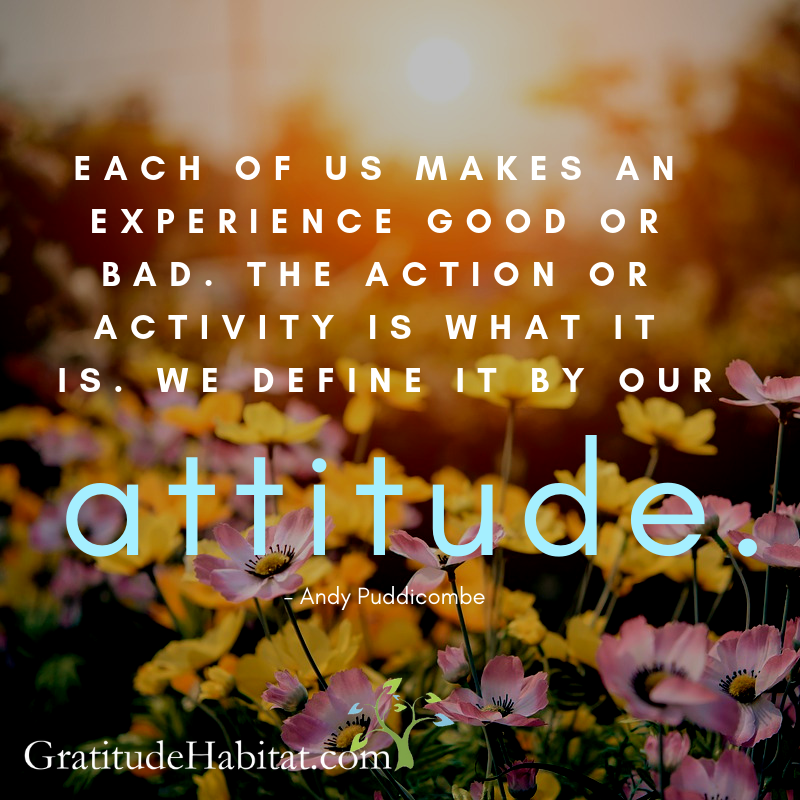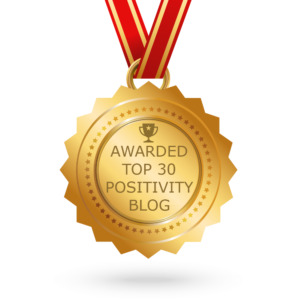Living In Gratitude: The Value of Mindfulness
Each of us makes an experience good or bad. The action or activity is what it is. We define it by our attitude toward it.
Traffic on the highway is heavy. We get impatient and annoyed.
We don’t get a promotion at work. We are hurt or upset.
Our child didn’t get first place. We are indignant.
Someone says something with which we disagree. We are offended.
Whatever the situation, our attitude defines that experience as either positive or negative. As humans, our inclination tends toward criticism and as such, much of our responses tend toward the negative. These less than favorable outlooks and our reactions to a situation creates tension in our bodies and mind. We have an internal dialog about how stupid, annoying, etc. it is, creating a story so immersive we distance ourselves from the actual experience.

Research studies have shown that 47% of the time (that’s almost HALF our lives!) we are lost in thought. We mull over and over about what happened or what might happen instead of being present right here, right now. This lack of presence has been shown to be a direct cause of unhappiness.
To use an analogy, life is an expansive beach comprised of millions of grains of sand, which represent our many experiences. If we only spend time focused on a few grains of sand, we miss the beauty of the beach itself. We never lift our heads up long enough to see the sparkling waves, the azure sky, the warm sun. When we quiet the noise in our heads (i.e. stop looking at those individual grains of sand) we can more easily appreciate and understand the present moment for what it is.
Being mindful sounds so ordinary, but according to
Being mindful helps us to create a framework to let go of what makes us unhappy. Rather than being lost in thought, overwhelmed by a whirlwind of emotions, of being constantly distracted, be mindful. Be present. Witness events without judgment, without blanketing it with our attitude.
When we work toward being present, our senses are heightened. We hear, see, smell, feel everything. Andy Puddicombe explained this experience when he was a monk and had to sweep the floors of the monastery for hours. At first, he said, it was mind-numbingly boring. But after about an hour, he began to immerse himself in the simplicity of the task. The swish sound of the bristles on the stone floor. The peacefully repetitive movement. The sparkling of the dust as it was caught in the light. When we are fully present, we are immersed in and appreciate what is occurring right now. This sharpens our focus, opens us up to creativity, to opportunity, to happiness. All of these things are denied us when we remain lost in thought.
Being mindfully present also allows us to sit with our emotions rather than wallow in them or constantly trying to move away from or tamp them down. As Puddicombe explains, “our emotions are with us wherever we go, no
Meditation, even as little as five minutes a day, is a healthy, transformative, scientifically proven
Would you rather be lost in thought for half your life or would you rather be present, mindful, and fully immersed in all of life’s experiences?
May your day be filled with mindfulness, gratitude, and good things.






